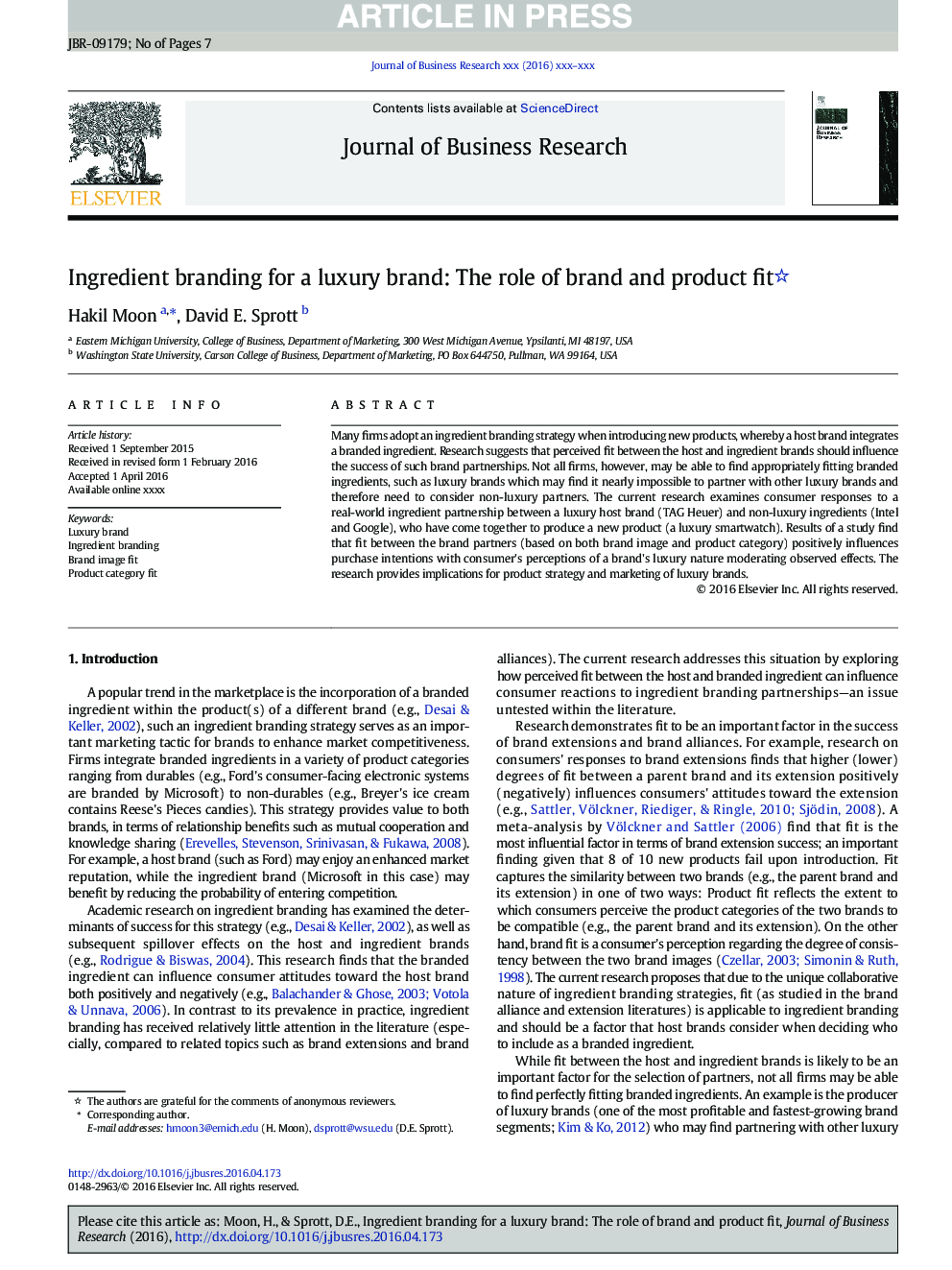| Article ID | Journal | Published Year | Pages | File Type |
|---|---|---|---|---|
| 5109648 | Journal of Business Research | 2016 | 7 Pages |
Abstract
Many firms adopt an ingredient branding strategy when introducing new products, whereby a host brand integrates a branded ingredient. Research suggests that perceived fit between the host and ingredient brands should influence the success of such brand partnerships. Not all firms, however, may be able to find appropriately fitting branded ingredients, such as luxury brands which may find it nearly impossible to partner with other luxury brands and therefore need to consider non-luxury partners. The current research examines consumer responses to a real-world ingredient partnership between a luxury host brand (TAG Heuer) and non-luxury ingredients (Intel and Google), who have come together to produce a new product (a luxury smartwatch). Results of a study find that fit between the brand partners (based on both brand image and product category) positively influences purchase intentions with consumer's perceptions of a brand's luxury nature moderating observed effects. The research provides implications for product strategy and marketing of luxury brands.
Keywords
Related Topics
Social Sciences and Humanities
Business, Management and Accounting
Business and International Management
Authors
Hakil Moon, David E. Sprott,
